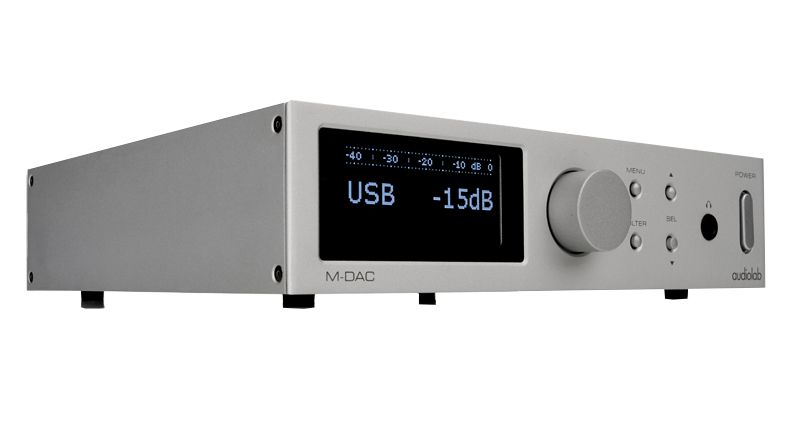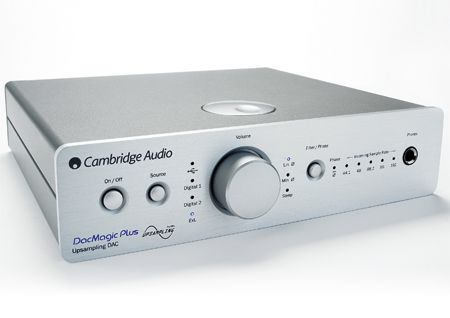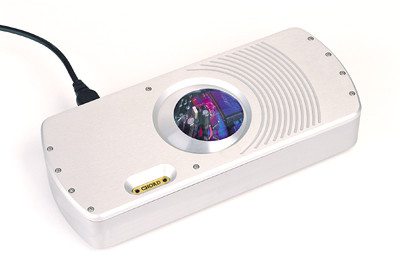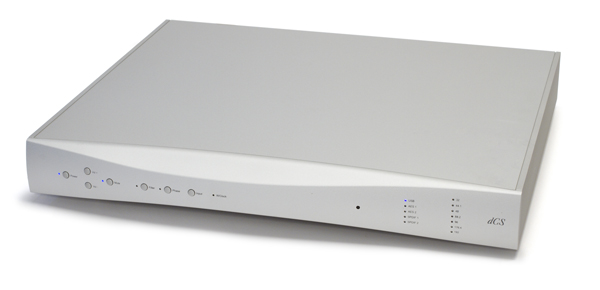Simon Lee, the founder of April Music, is a hi-fi aficionado who left a solid profession to import obscure foreign brands into his native South Korea; he then decided to start developing his own designs as well. The DP200 you see here is one of the intriguing products that resulted. Although commonplace now, the concept of an upsampling DAC preamplifier like this was groundbreaking in 2008. It was, in fact, the first product of its kind I had ever seen.
It included analogue preamplifier, digital preamplifier, and upsampling DAC capability, as well as an optional MM/MC phono input card and/or analogue-to-digital converter card, and a conventional headphone preamplifier, costing £1,495 on launch in the UK. It’s a well-balanced discrete Class-A design with high-quality components and a neat appearance under the hood. The cable runs are clean, and the signal routes are kept short. There are two analogue outputs and three analogue inputs (1 XLR balanced, 2 RCA unbalanced) (1 XLR balanced, 1 RCA unbalanced). An optional phono card (£195) can be used with the first analogue input. This card has MM and MC inputs, as well as six distinct loading and gain settings, all of which are controlled via finicky jumpers inside the card’s chassis.
The inbuilt DAC supports formats up to 24-bit, 192kHz, with upsampling rates user-selectable via the front panel or remote control — options of bypass, 48kHz, 96kHz, and 192kHz are available), Record, and Volume. The latter is a 120-step digital affair that works separately on each input, allowing you to set your ‘optimal level’ for each source and not lose it when switching sources. The 162-character alphanumeric fluorescent display is dimmable but not defeatable, and keeps you well informed about what’s being routed where.
The DP200 isn’t as difficult to set up as its lengthy specifications suggest. Connecting an IEC power lead to a power amplifier on one end and whatever source components on the other is all that’s required. However, configuring the phono card is a nightmare, since you must remove the case from the chassis, locate the card, locate the jumpers, and then fight with a very arcanely written appendix in the lackluster instruction manual. Hopefully, your friendly neighborhood dealer will take care of it. The remote control is a delightful surprise: it’s made of aluminium alloy and has a very positive movement, despite being a large black affair (quite eighties throwback, in fact). A small control panel for Philips RC5-compatible CD players is also provided.
This product has a little bright tone to it, but it’s never harsh or aggressive. The DP200 isn’t astringent in any way; rather, it boasts an impressively wide sound over the audio spectrum. It produces a wide, panoramic recorded acoustic sound with a powerful and tuneful bottom. It’s not rich or colored, but it’s not dry in the way that Naim preamps may be. It’s a smidgeon on the euphonic side of neutral, but only a smidgeon. The timbre and texture of the vocals are enhanced by their direct and natural character. At this pricing bracket, acoustic instruments offer an inherent naturalness that is uncommon.
Treble is impressive, having an outspoken and direct attitude, yet it never becomes brilliant. There’s a wonderful sense of atmosphere and space here, as well as delicacy, as seen by the shimmering, sonorous splendor of hi-hat cymbals, for example. Despite its crispness, there is only a ‘hint of silk’ that reminds me of Japanese high end. The result is an open sound with a hint of euphony, thanks to an ever-so-slightly warm bass.
The internal DAC was excellent by 2008 standards, having a very clean and detailed character. Bass is abundantly large yet articulate, midband spacious and atmospheric, and treble silky and beautiful, much as it was with the analogue input. The midband hangs back behind the plane of the speakers, the treble takes on a natural airiness, and the bass gets broader and more musical when the Upsample button is used. So the DAC is surprisingly good, and the headphone amplifier isn’t quite up to level with the greatest standalone designs but certainly isn’t a slouch.
Few Stello DP200s were sold in the UK, but if one does turn up in Europe for £300 to £400, it’s well worth considering. It’s no universal cure, and its digital performance has been surpassed by the likes of Audiolab’s M-DAC, but it’s still a really classy and adaptable piece of gear, and one of the greatest hidden secondhand values in recent years.







